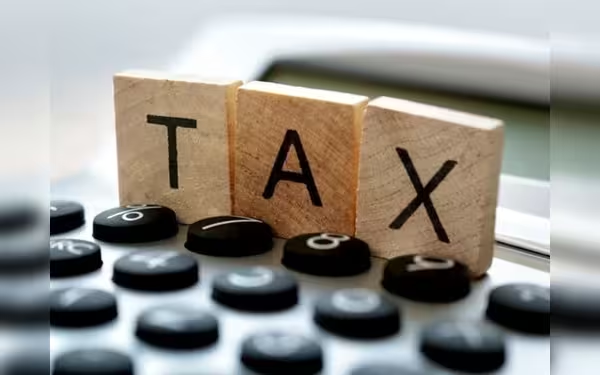Thursday, November 7, 2024 10:02 AM
Pakistan Tax Collection Shortfall Raises Concerns
- Rs190 billion shortfall in tax collection reported.
- Government may implement mini-budget to address gap.
- Public trust at risk due to tax policy effectiveness.
 Image Credits: tribune.com.pk
Image Credits: tribune.com.pkPakistan faces a Rs190 billion tax collection shortfall, prompting concerns over economic strategies and potential mini-budget implementation.
The recent announcement regarding Pakistan's tax collection has raised eyebrows across the nation. The government has reported a staggering shortfall of Rs190 billion in its tax collection target for the first four months of the fiscal year. This comes despite the imposition of record-high taxes, which were expected to bolster the country’s revenue. The situation is alarming, as it may lead to necessary adjustments in tax targets or even the implementation of a mini-budget to address the financial gap.
In the first quarter, government officials had already hinted at a potential revenue shortfall. They pointed out that there were significant mismatches between the assumptions used to set the tax targets and the actual revenue collected. This discrepancy has raised questions about the effectiveness of the current tax policies and the ability of the government to meet its financial goals.
The implications of this shortfall are far-reaching. A mini-budget could mean more taxes for the citizens, which may not sit well with the public already burdened by high living costs. Additionally, the government may need to reconsider its economic strategies to ensure that future targets are more realistic and achievable. The reliance on record-high taxes has not yielded the expected results, prompting a reevaluation of the overall tax framework.
As the government grapples with this financial challenge, it is crucial for policymakers to engage in transparent discussions with the public. Understanding the reasons behind the shortfall and the steps being taken to rectify the situation will be vital in maintaining public trust. Moreover, it is essential to explore alternative revenue-generating strategies that do not solely depend on increasing tax rates.
The missed tax target is a wake-up call for the government. It highlights the need for a more robust and adaptable economic strategy that can withstand the complexities of the current financial landscape. As citizens, it is important to stay informed and engaged in discussions about fiscal policies that directly impact our lives. The road ahead may be challenging, but with the right approach, there is hope for a more stable economic future.













